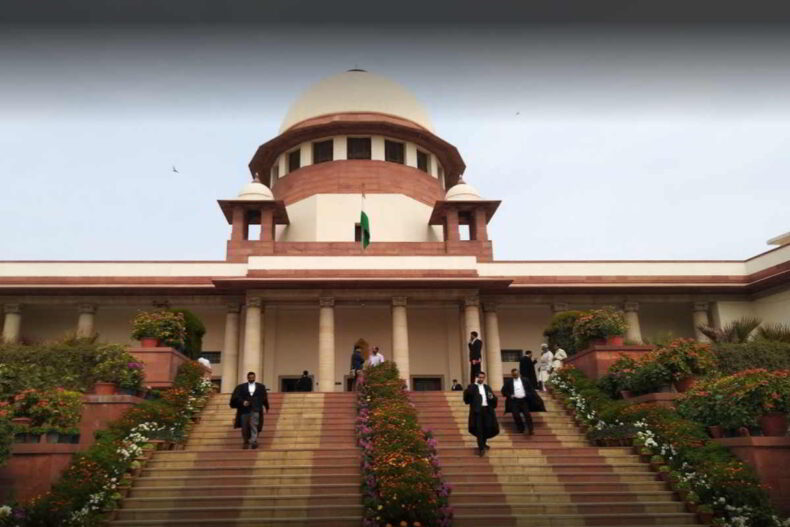The same-sex marriage bench has been notified recently, and the petitions seeking legal validation and hearing will commence on April 18, 2024. But some significant matters like the entry of women into Sabrimala temple, the scope of judicial review in matters of faith, the abrogation of Article 370, and the challenge to the Citizenship Act still await adjudication from the Apex Court of India.

Table of Contents
Many significant issues other than same-sex marriage still await adjudication from the Apex Court of India. In some cases, adjudication is still pending since 2014, led by a bench that preceded CJI Chandrachud’s bench. The issue arises out of the 1985 Assam accord and validity dates for ‘illegal’ immigrants of Indian origin who came to Assam from Bangladesh. A 2014 Supreme Court case to determine the validity of Section 6A in the Citizenship Act. Led by Assam Sanmilita Mahasangha, which sought the validity of Section 6A, it was claimed that it violated fundamental rights, stating that no mechanism is provided to determine which person is an ordinary resident of Assam based on the date of their entry into Assam.
Apart from these cases, adjudication on some sensitive matters, like challenges to the Citizenship Amendment Act (C thatAA), the hijab row, etc., is also pending. In a 2017 case, the definition of “industry” as interpreted by a seven-judge bench in 1978 in the Banglore water supply case is yet to be reconsidered. Bishwajit Bhattacharyya, senior advocate and former additional solicitor general (ASG), said in a statement, It would be an appropriate time to have a permanent constitution bench so that old matters may get due priority and hearing. He further mentioned that currently, the Supreme Court is working with the full strength of 34 judges.
Adjudication is expected in 2019 and 2020 cases
Some cases from 2019 and 2020, 2021 and 2022 are still awaiting adjudication from the bench led by Chief Justice of India, Dhananjaya Y. Chandrachud. An order from November 2019 led by a five-judge bench sets out seven questions of law to be examined by the larger bench. The interplay between freedom of religion under Articles 25 and 26 of the Constitution need to be described precisely so that the Court can inquire into particular religious practices and whether essential religious practices are protected under Article 26.

Another impending adjudication on the entry of women into the Sabrimala temple is still awaited since February 2020. the then Chief Justice of India, SA Bobde led a nine-judge bench, who noted that the reference was required to do complete justice in a pending matter, namely the Sabrimala matter. It was decided unanimously that a larger bench would refer to the legal issues surrounding the ambit and scope of religious freedom practised by multiple faiths across the country.
Updates on Same-Sex Marriage and the Ban on Wearing Hijab
Other than the issues mentioned above, judgement is due on same-sex marriage and the ban on wearing hijab. The petitions on same-sex marriage are expected to be accepted on April 18, 2024. The Hijab matter has been mentioned at least once since the order of the reference, but the three-judge bench is yet to be notified. The court announced a split verdict on the Hiajb ban in October 2022. It was referred to as a larger judge bench because of the clash of opinions between two judgements.

Bhattacharyya, a senior advocate, said in a statement that the procedure before the constitution bench should limit the duration of arguments by lawyers, followed by written submissions that would address the scope of the issues involved. He mentioned that such a procedure would help the constitutional bench cases by ensuring a time-bound wrap of the arguments.













